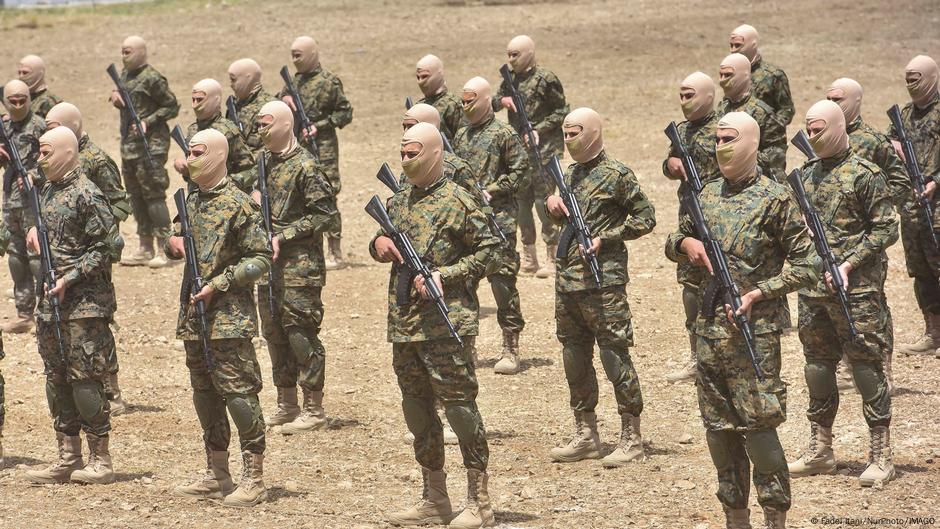
Explosions at Hezbollah Weapons Facility in Lebanon
A tragic incident occurred near the Israeli border in southern Lebanon, where six Lebanese soldiers were killed while inspecting a weapons depot belonging to the Iran-backed group Hezbollah. The event has raised concerns about the ongoing tensions and the challenges of disarming the powerful militant group.
The explosion took place in Wadi Zibqin, a region in the Tyre district close to the border with Israel. According to a statement from the Lebanese army, the soldiers were dismantling the contents of the weapons depot as part of a joint effort with a United Nations team. This operation is part of a broader ceasefire agreement signed in November, which requires Lebanon to disarm Hezbollah.
Investigations are currently underway to determine the exact cause of the blast. A military source, who wished to remain anonymous, told AFP that the explosion occurred inside a Hezbollah military facility. The troops were reportedly removing munitions and unexploded ordnance left over from the recent conflict between Israel and Hezbollah when the incident happened.
Lebanese President Joseph Aoun described the explosion as a "painful incident," while Prime Minister Nawaf Salam paid tribute to the soldiers on social media, acknowledging their sacrifice while performing their national duty.
Regional Conflicts and the Impact on Lebanon
Lebanon has been caught in the crossfire of a regional conflict that began after the October 7, 2023, terror attacks by Hamas on Israel, which led to the Gaza war. Since then, Israel and Hezbollah have engaged in regular exchanges of fire and attacks across the shared border.
Hezbollah suffered significant losses, with over 5,000 fighters killed and several senior commanders, including long-time leader Hassan Nasrallah, losing their lives. Nasrallah was assassinated last September in an Israeli airstrike on Hezbollah's headquarters in a suburb of Beirut.
The conflict was eventually halted by a US-brokered ceasefire in November. Under the terms of the agreement, Lebanon committed to confiscating all "unauthorized" weapons within the country. In return, Israel agreed to cease offensive operations against Lebanese targets.
Hezbollah’s Resistance to Disarmament
Despite the ceasefire, the process of disarming Hezbollah has faced resistance. The Lebanese government recently met to develop a plan for disarming the group before the end of the year. However, Hezbollah has pushed back against these efforts. Naim Kassem, the current leader of Hezbollah, has rejected the calls to disarm, calling them "US dictates" and a threat to Lebanon’s sovereignty.
Hezbollah holds a unique position in Lebanon, functioning both as a major political party and a heavily armed group that surpasses the strength of the national army. This dual role gives it significant influence over the country’s government and security apparatus.
Iran provides substantial financial and military support to Hezbollah, along with other groups like Hamas and Yemen’s Houthis. This support is aimed at expanding Iran’s regional power and countering the influence of Israel and the United States in the Middle East.
An adviser to Iranian Supreme Leader Ayatollah Khamenei stated that Tehran opposes any move toward Hezbollah’s disarmament. This stance highlights the deep geopolitical interests at play in the region.
International Perspectives on Hezbollah
Hezbollah is designated as a terrorist organization by the United States, Israel, and several other countries. However, the European Union only recognizes Hezbollah’s armed wing as a terrorist group, highlighting the complex international views on the matter.
As the situation continues to unfold, the events in Lebanon underscore the delicate balance of power and the ongoing challenges of maintaining stability in a region marked by deep-seated conflicts and external influences.
